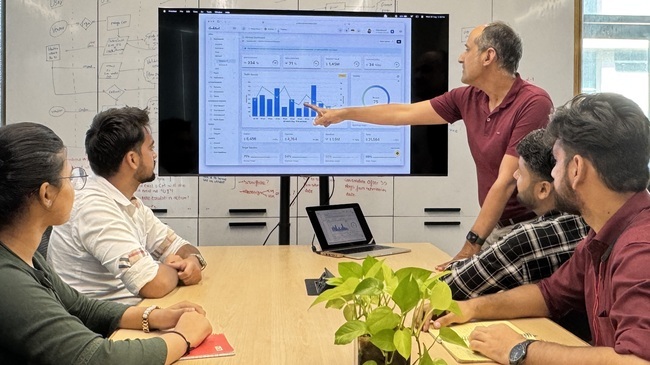The US economy is currently facing a perfect storm of challenges. Inflation, supply chain disruptions, and the threat of a recession have left CEOs navigating a particularly difficult landscape. While digital transformation and process automation are seen as potential lifelines, the journey to implementation is fraught with challenges.
A recent McKinsey report found that although 70% of executives recognise the critical importance of digital transformation, only 20% feel equipped with the necessary capabilities. This gap is widening as economic uncertainty compels companies to tighten their spending.
“The economic climate is making it difficult to justify large-scale digital investments,” says Rohit Sharma, a leading industry analyst at KoreCent. “CEOs are caught between the need to innovate and the pressure to cut costs.”
The situation is further complicated by a severe talent shortage. A study by one of the Big Four market research firms reported a significant increase in job postings for digital roles over the past year, despite widespread redundancies. Attracting and retaining highly skilled talent remains a top priority for many organisations.
Moreover, the rapid pace of technological advancement presents a daunting challenge. Legacy systems and processes often hinder agility, making it difficult for companies to adapt to changing market conditions. A recent Gartner report noted that organisations struggling with legacy systems are 20% less likely to achieve their digital transformation goals.
The competitive landscape is also changing rapidly. New market entrants, often backed by venture capital, are disrupting traditional industries with innovative business models and technologies. To stay competitive, established companies must embrace a culture of innovation and agility, which requires moving away from rigid hierarchical structures towards more collaborative, customer-centric approaches.
Process automation offers a potential solution. By streamlining operations and reducing manual tasks, companies can improve efficiency, cut costs, and free up employees to focus on strategic initiatives. However, selecting the right automation partner is essential.
In this context, the role of technology providers like KoreCent becomes increasingly significant. With a proven track record of delivering high-quality solutions to enterprises, KoreCent offers a comprehensive range of services that help CEOs address the challenges outlined above. Their expertise in platforms such as ERPNext, Oracle Netsuite, ServiceNow, SAP, and Odoo enables them to provide bespoke solutions tailored to the specific needs of each client.
KoreCent’s customer-centric approach, combined with their deep technical expertise and digital competence, ensures that their solutions are not only effective but also aligned with the strategic objectives of their clients. By focusing on delivering value at a reasonable cost and maintaining a respectable velocity, Korecent helps businesses gain a competitive advantage without compromising on quality.
As CEOs navigate the complexities of the US market, they must acknowledge the crucial role of digital transformation and process automation. By partnering with innovative technology providers like KoreCent, they can overcome the challenges they face, enhance their operational efficiency, and position their businesses for sustained success.







